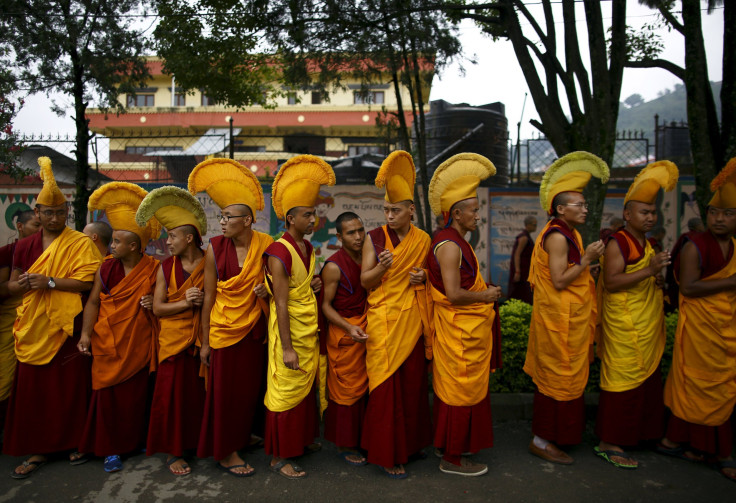China Passport Policy Restricts Tibetans, Uighurs From Leaving Country: Report

China's travel policies effectively ban Tibetans and other ethnic and religious minorities from getting passports, according to a scathing report from Human Rights Watch.
The report, released Monday, accused Chinese authorities of using a two-track system for issuing passports, which, along with travel restrictions for the Tibetan region -- instituted since 2012 -- meant that foreign travel by Tibetans was effectively banned unless they were on official business. The report found that the two-track system made it easier for members of China's Han majority to get a new passport while hindering members of China's Muslim or Tibetan minority groups.
"If you are a religious minority who lives in a part of the country where most people are minorities, it's virtually impossible to get a passport," Sophie Richardson, China director at Human Rights Watch, said Monday, according to Agence France-Presse.
The report added that the slow-track system was put in place specifically to stop religiously or politically motivated activities that Chinese authorities saw as subversive -- such as attending speeches by Buddhist spiritual leader, the Dalai Lama, or independent pilgrimages to Mecca.
In the Tibetan Autonomous Region, authorities were even more restrictive, where almost all passports held by the region's residents were confiscated when the Chinese government announced a shift to a new "ePassport" system in 2012. However, almost no replacement passports have been issued, the report claimed, adding that it found only two passports were issued in 2012 in Tibet's Changdu prefecture, which has a population of 650,000.
"Getting a passport is harder for a Tibetan than getting into heaven. This is one of those "preferential policies" given to us Tibetans by [China's] central government," an unnamed Tibetan blogger reportedly wrote in 2012, according to a Human Rights Watch release.
The Chinese government has faced sustained criticism of its policies in Tibet, which has seen an unprecedented crackdown ever since mass protests in 2008 saw clashes between residents and police.
In response to the uprising, the government has been accused of targeting and undermining Tibetan political groups and gatherings, detaining and extra-judicially torturing several detainees and locking down monasteries. In July, the country passed a sweeping new security bill, which rights groups warned opened the door for prosecuting religious minorities as extremists.
The policies also targeted China's ethnic Uighur Muslims, who have faced increased security crackdowns in their native Xinjiang region. Hundreds of Uighurs were detained last year after they were found to have illegally entered Thailand. When Thailand deported 109 Uighurs back to China last week, it triggered violent protests in Turkey and an attack on the Thai consulate in Ankara.
"Chinese authorities seem to believe that systematically denying Tibetans' rights to travel brings greater stability to the Tibet Autonomous Region," Richardson said, in the statement. "But it's respect for human rights – including equal access to passports – that might begin to reduce Tibetans' distrust of the government."
© Copyright IBTimes 2025. All rights reserved.





















